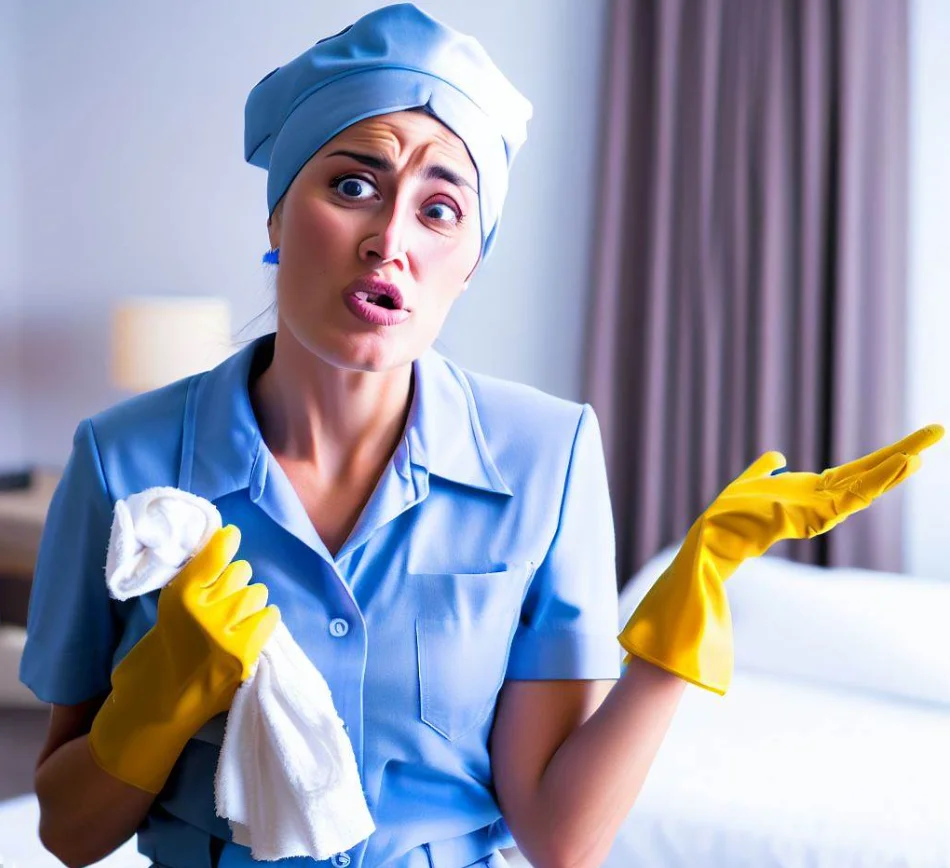Working alone on a hotel floor can put a worker in a vulnerable situation, making them susceptible to assaults or unwelcome behaviors. Unfortunately, such incidents are not uncommon in the hospitality industry. For instance, in North Carolina, a female hotel worker was assaulted and almost raped by a guest when cleaning a guest room. Similarly, in New York, two suspects attacked a male hotel worker, knocking him to the ground and punching him repeatedly. Such incidents can cause severe physical and emotional trauma to the workers, affecting their overall well-being.
What are the types of vulnerabilities that hotel workers face?
The hospitality industry can be a dangerous place for workers, especially those who work alone. With reduced staff numbers due to the pandemic, hotel workers are more vulnerable than ever before. Depending on where someone is working alone, it places them in different vulnerable situations based on their access to receive help.
Housekeepers are particularly vulnerable when working alone. They clean an average of 14 or more rooms per day, and when cleaning guest rooms, they are often the only person on the hotel floor with a cleaning cart and a guest room phone nearby. This puts them in a vulnerable situation where they may be victims of physical or sexual assault, witness indecent exposure, experience inappropriate behavior, or have a medical emergency where it is difficult to move to another location for help.
 Front desk associates are also at risk when working alone, especially during certain times of the day when there is only one person at the front desk. Anyone can walk through the property’s doors, making it a dangerous or uncomfortable situation for the front desk associate. They may be victims of physical assault or threatening verbal assault, including racial slurs. They may also be exposed to increased health risks, such as checking the temperature of guests required to quarantine and addressing the removal of discontent trespassers.
Front desk associates are also at risk when working alone, especially during certain times of the day when there is only one person at the front desk. Anyone can walk through the property’s doors, making it a dangerous or uncomfortable situation for the front desk associate. They may be victims of physical assault or threatening verbal assault, including racial slurs. They may also be exposed to increased health risks, such as checking the temperature of guests required to quarantine and addressing the removal of discontent trespassers.
To ensure the safety of hotel workers, hotels can implement several safety measures. Panic buttons can be provided to housekeepers, allowing them to call for help when they feel threatened or uncomfortable. Regular safety training can also be conducted to educate employees on how to recognize potential threats, de-escalate situations, and respond appropriately when faced with an emergency. Moreover, hotels can provide personal safety devices such as alarms or whistles to front desk associates, ensuring their safety when working alone.
How can hoteliers protect their hotel workers?
As an employer, hoteliers have a legal and ethical responsibility to ensure the safety and well-being of their workers. Failure to invest in staff safety can lead to various unfavorable outcomes, including workers abandoning their jobs, legal fees, increased insurance premiums, negative media, and more. On the other hand, protecting hotel workers can also safeguard the hotel’s brand reputation. Here are some ways hoteliers can protect their hotel workers:
Conduct a staff safety assessment: Each hotel has unique operations and safety policies. Conducting a staff safety assessment as a regular exercise can help identify risks, assess existing measures, and find solutions to take action to invest in staff safety.
Implement safety measures: Based on the results of the safety assessment, hotels can implement various safety measures to protect their workers. Panic buttons, personal safety devices, and emergency buttons are some examples of safety measures that can be implemented to help workers call for help and alert security or the front desk of potential threats.
Provide regular safety training: Regular safety training can help educate employees on how to recognize potential threats, de-escalate situations, and respond appropriately when faced with an emergency. Training can also include self-defense techniques that can help workers protect themselves in case of physical attacks.
Increase staffing levels: Having more staff present in the hotel can help reduce the risks associated with working alone. By increasing staffing levels, hoteliers can ensure that workers have someone nearby to call for help if they feel threatened or uncomfortable.
Encourage open communication: Encouraging open communication between workers and management can help identify potential safety concerns and allow for timely action to be taken to address them. Workers should feel comfortable reporting incidents or concerns to management without fear of retaliation.
